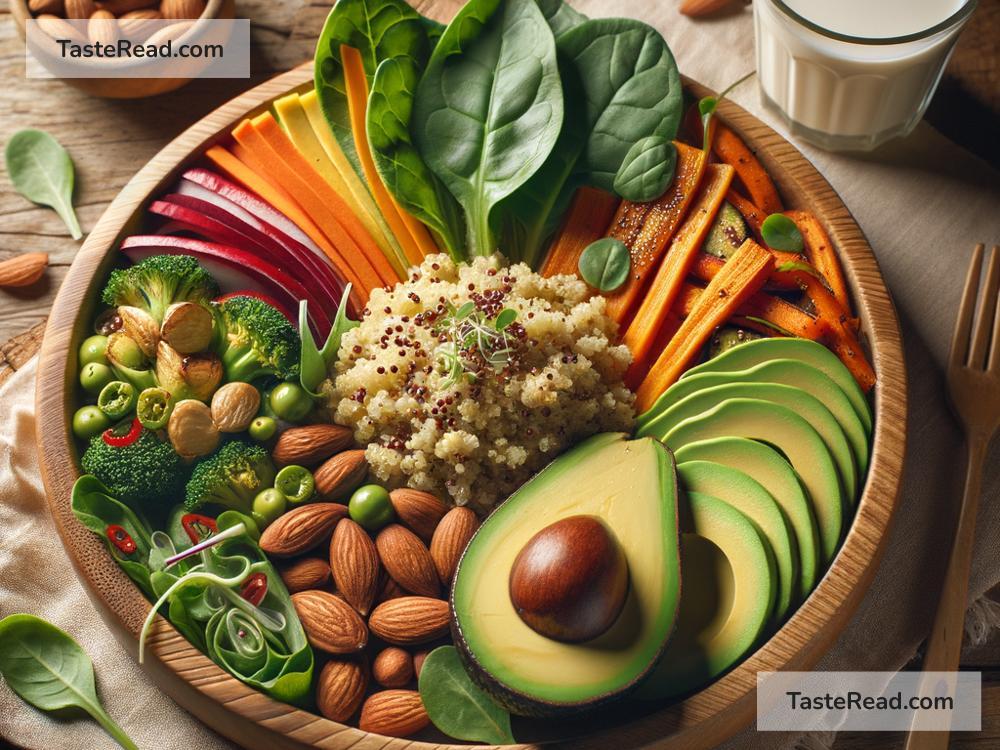The Science Behind Vegan Diets: What Makes Them So Healthy?
Vegan diets have been gaining popularity around the world, and for good reason! Many people turn to plant-based eating because they want to lead healthier lives, help the environment, or reduce harm to animals. But what is the science behind vegan diets? Why do so many health experts support them? Let’s break it down in simple terms.
What Is a Vegan Diet?
A vegan diet is one where you don’t eat any animal products. That means no meat, fish, eggs, dairy, or anything made from animals. Instead, vegans focus on eating fruits, vegetables, grains, nuts, seeds, legumes (like beans and lentils), and plant-based alternatives.
This lifestyle choice is rooted in nutrition science, which shows that plants have an incredible amount of nutrients the human body needs to thrive.
The Nutrient Power of Plants
Plants provide a wide range of nutrients like vitamins, minerals, fiber, and healthy fats. Let’s look at some key nutrients packed into a vegan diet:
-
Fiber: Fiber is essential for a healthy digestive system. It helps move food through your body and prevents constipation. Fiber is also linked to lower cholesterol levels and better heart health. Since plant foods are rich in fiber, vegans typically have higher fiber intake than those who eat meat-based diets.
-
Vitamins and Minerals: Vegan diets are filled with essential nutrients like vitamin C (found in citrus fruits), vitamin A (in carrots and sweet potatoes), potassium (in bananas and avocados), and magnesium (in leafy greens and nuts). These vitamins and minerals help your body stay energized and support your immune system.
-
Antioxidants: Antioxidants protect your cells from damage caused by harmful molecules called free radicals. Fruits, vegetables, and nuts are packed with antioxidants, which can help reduce inflammation, improve skin health, and even lower the risk of certain diseases.
-
Healthy Fats: Vegans get heart-healthy fats from foods like avocado, nuts, seeds, and olive oil. These sources are much better for your cardiovascular health than the saturated fats found in animal products.
Lowering the Risk of Chronic Diseases
One of the biggest scientific benefits of vegan diets is their ability to reduce the risk of chronic diseases. Research has shown that vegans often have lower rates of heart disease, type 2 diabetes, high blood pressure, and certain types of cancers. Why is that?
-
Heart Health: Vegan diets are cholesterol-free because cholesterol is only found in animal products. High cholesterol levels can lead to heart disease, so cutting out animal-based foods helps keep your heart healthy. Plus, the fiber and healthy fats in plant-based diets also help prevent heart problems.
-
Diabetes Prevention: Plant foods are lower in unhealthy fats and higher in fiber, which helps regulate blood sugar levels. Studies show that vegans are less likely to develop type 2 diabetes, and those who already have the condition may find it easier to manage with a plant-based diet.
-
Cancer Protection: Certain plant foods are rich in cancer-fighting compounds like antioxidants and phytochemicals. These substances help protect your cells from damage and may lower your risk of cancers such as colon and breast cancer.
-
Weight Management: Many vegans find it easier to maintain a healthy weight. Plant-based foods are generally lower in calories while still being filling, thanks to the fiber content. As a result, vegan diets can help prevent obesity, which is a major risk factor for many health issues.
Protein: Don’t Worry, Plants Have Plenty!
You may have heard people say that vegans don’t get enough protein. This is a common myth. In reality, there are many plant-based protein sources, like beans, lentils, tofu, tempeh, nuts, seeds, and even whole grains like quinoa. These foods contain all the building blocks (called amino acids) that your body needs to stay strong and healthy.
Most people in developed countries get far more protein than their bodies need, so switching to plant-based sources is not a problem for most individuals. As long as vegans eat a variety of protein-rich foods, they’re covered.
Key Considerations for Vegans
While vegan diets are packed with health benefits, it’s important to plan them carefully to avoid nutrient deficiencies. Some nutrients, like vitamin B12, iron, and omega-3 fatty acids, are harder to find in plant foods. Let’s discuss how vegans can address these:
-
Vitamin B12: This nutrient is primarily found in animal products, so vegans must take B12 supplements or eat fortified foods like plant-based milks and cereals. B12 is crucial for healthy red blood cells and nerve function.
-
Iron: Plant-based sources of iron include lentils, spinach, and tofu. Pair iron-rich foods with vitamin C (from citrus fruits or tomatoes) to help your body absorb the iron better.
-
Omega-3 Fatty Acids: While fish is a common source of omega-3s, vegans can get these healthy fats from flaxseeds, chia seeds, walnuts, and algae-based supplements.
The Bigger Picture
Science shows that vegan diets are not just good for individual health—they’re also beneficial for the planet. Producing meat and dairy requires large amounts of land, water, and energy, and it contributes to greenhouse gas emissions. By eating plants, vegans are reducing their environmental impact.
Conclusion
Vegan diets are backed by science as a powerful way to improve health, prevent chronic diseases, and take care of the planet. By eating the right mix of plant-based foods, vegans can enjoy all the nutrients their bodies need while feeling energized and strong. While it takes some planning, the benefits of going vegan—from heart health to a clear conscience—make it a choice worth considering.


